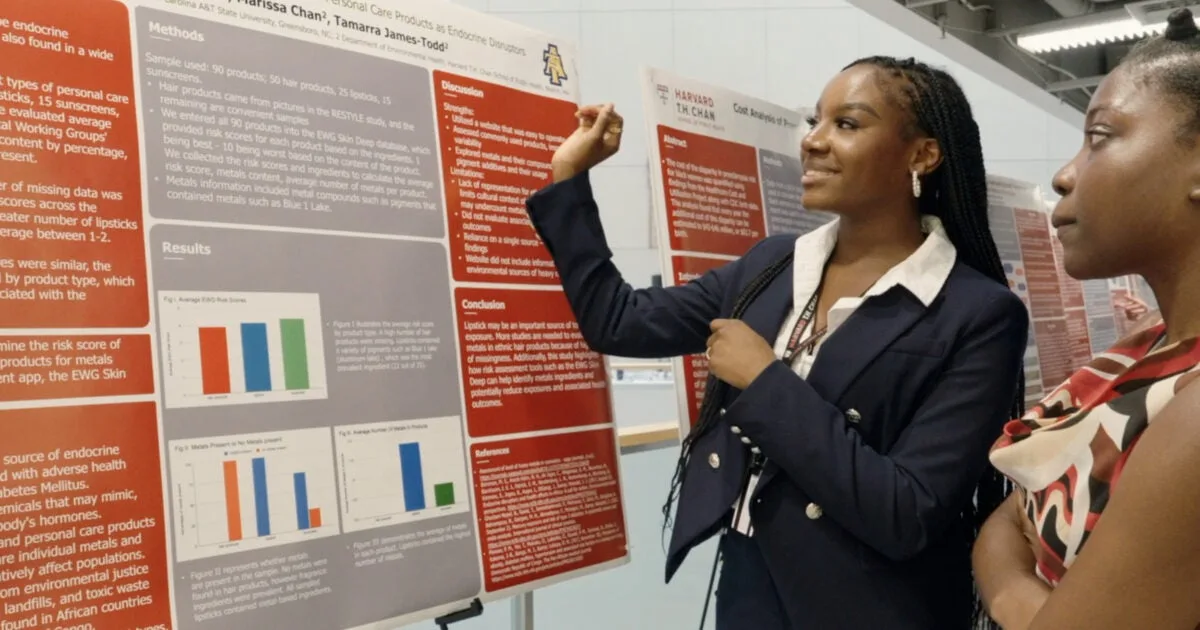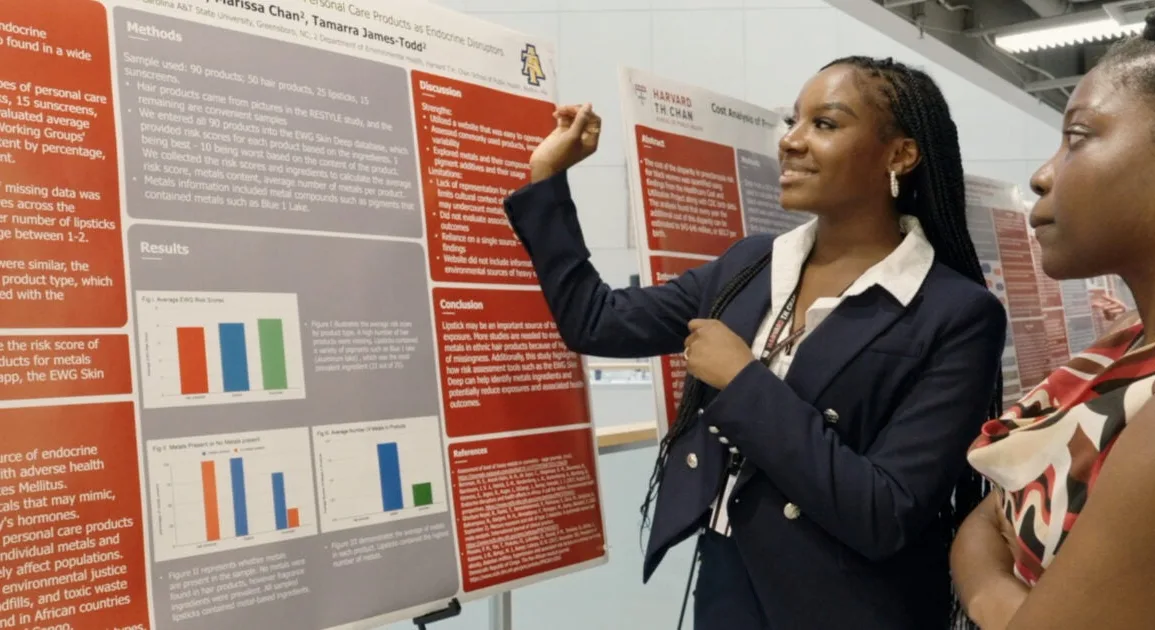
Growing up, Shana Grant knew that she wanted to pursue a health-related career, so she set her sights on the path that she was most familiar with — becoming a doctor. But once in college, she found that the idea of practicing medicine didn’t feel quite right.
“I just didn’t know how to express my interest in health and improving health equity without being a doctor,” Grant said. When someone suggested that public health might fit the bill, she recalled thinking at the time, “I’ve literally never heard that before.”
To learn more about the field, Grant, a rising senior at Spelman College, applied to the Fostering Advancement & Careers through Enrichment Training in Science (FACETS) summer program held at Harvard T.H. Chan School of Public Health. Run by the Office of Diversity and Inclusion since 2014, the six-week program offers rising junior and senior undergraduate students from underrepresented groups around the country a mix of interdisciplinary coursework, hands-on research, and professional development in the field of public health.
Erica Knight, FACETS director, noted that historically Black colleges and universities, Hispanic-serving institutions and tribal colleges and universities often do not offer majors in public health — which is where FACETS comes in. “The major goal of the program overall is to diversify the pipeline for public health professionals and practitioners,” she said.
FACETS coursework highlights the interdisciplinary nature of public health, covering subjects ranging from social and behavioral sciences to biostatistics. Additionally, the program’s professional development workshops center on graduate school preparation.
“We want the students to leave the program with a strategy as to how to pursue graduate study and ultimately how to pursue their career,” Knight said. “We want them to leave with an arsenal of tools to help them negotiate and advocate for themselves.”
Students also conduct research under the mentorship of Harvard Chan faculty and researchers and present their projects at a symposium at the end of the program. Research projects undertaken by the nine students in this year’s cohort focused on health disparities, addressing topics such as the prevalence of toxic metals in Black women’s personal care products, barriers faced by undocumented immigrants in accessing health care, and the impact of meditation on stress and cardiovascular disease in Black women.
Grant was mentored by Tamarra James-Todd, Mark and Catherine Winkler Associate Professor of Environmental Reproductive Epidemiology, and worked on a research project about hair products targeted toward Black women, which can contain chemicals that disrupt hormones. Grant studied potential correlations between product use and a particularly severe form of alopecia — a disease that causes hair loss — that leads to permanent scarring.
Grant appreciated the opportunity to talk with researchers in the field—in some cases, those who authored the very papers she was reading. “Many of them said, ‘Let’s continue to stay in contact,’ which just makes me feel like I’m supposed to be here — like my ideas are valid,” she said.


